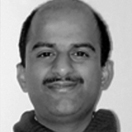Dr Jagadeesh Bayry

Role of heme oxygenase-1 (hsp-32) in the anti-inflammatory activity of IVIg
Dr Bayry and his colleagues have been actively involved in elucidating the mechanisms of action of intravenous immunoglobulin (IVIg) for several years. Dr Bayry's award-winning proposal will examine the hypothesis that one of the molecular mechanisms of anti-inflammatory activity of IVIg involves the induction of Heme oxygenase-1 (HO-1). HO-1 is a heme-metabolising enzyme that has been implicated in diverse biological processes such as anti-oxidation, anti-apoptosis, and anti-proliferation of smooth muscles. Numerous studies have also demonstrated that HO-1 drives a large number of anti-inflammatory functions including modulation of Th1-Th2 cytokine balance, regulation of dendritic cell and endothelial cell biology, and differentiation of T-regs.
The hypothesis will be examined both in vitro (using human peripheral blood mononuclear cells, dendritic cells and endothelial cells as well as the splenocytes of mice) and in vivo experiments (using Experimental Autoimmune Encephalomyelitis model).
Dr Bayry expects that IVIg exerts its anti-inflammatory effects by inducing HO-1 expression and activity. Elucidating the molecular mechanisms would help to understand the effects of IVIg on the cellular immune compartment and in identifying novel targets for IVIg therapy.
Curriculum vitae of Dr Jagadeesh Bayry
Dr Bayry is a research scientist at Institut National de la Santé et de la Recherche Médicale (INSERM). He is working at the Immunopathology and Therapeutic Immunointervention Laboratory of Centre de Recherche des Cordeliers in Paris, France.
He received his Veterinary Medicine degree in Bangalore, India in 1996, and completed his postgraduate studies in Virology and Immunology from the Indian Veterinary Research Institute. He obtained a PhD from the Université Pierre et Marie Curie, Paris in 2003. He later carried out postdoctoral research at the Edward Jenner Institute for Vaccine Research, University of Oxford, UK. In 2006, he was recruited as a scientist by INSERM. His research is aimed at understanding the mechanisms of immune tolerance, the mechanisms of action of intravenous immunoglobulin and the host-pathogen interaction.
He has authored more than 70 papers in leading journals.

